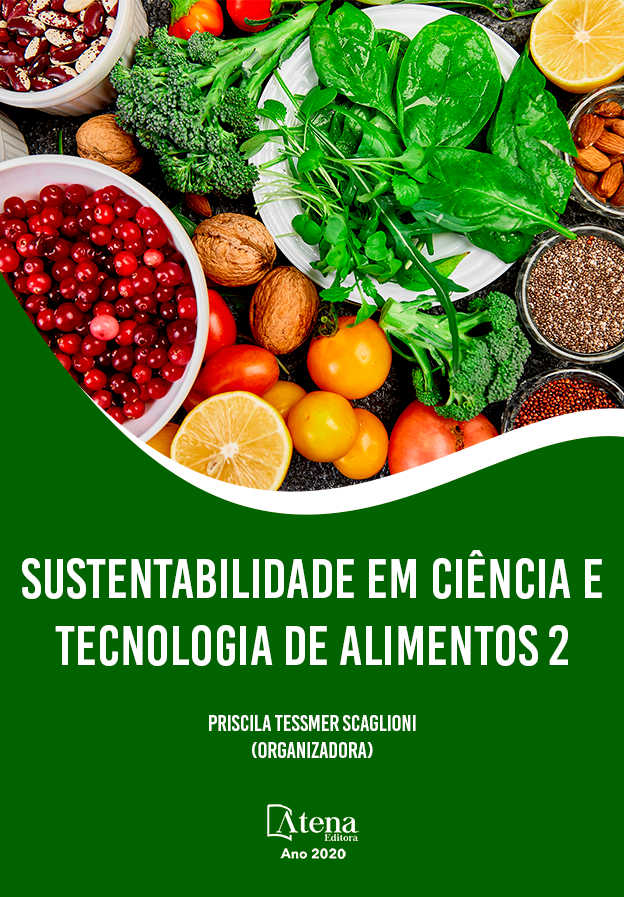
PRODUÇÃO BIOTECNOLÓGICA DE EXTRATO ENZIMÁTICO COM ATIVIDADE AMILOLÍTICA POR FERMENTAÇÃO SUBMERSA DE RESÍDUO AGROINDUTRIAL
As amilases constituem um dos maiores grupos de enzimas hidrolíticas industriais devido a seu largo espectro de aplicações industriais. Estas podem ser obtidas por fermentação em submersa (FS), com elevada atividade, por fontes microbianas. As amilases podem ser obtidas por fontes de baixo custo como resíduos agroindustriais ricos em indutores como amido e maltose, com elevada produção. Este trabalho objetiva avaliar o potencial de resíduo agroindustrial água de lavagem de batatas oriundo de indústria de beneficiamento de batatas como substrato por FS para produção de enzimas amilolíticas usando microrganismo Bacillus subtilis. Foi observado que a diluição do substrato aumenta a atividade amilolítica e a temperatura e pH tem papel chave na otimização. Os extratos com o meio diluído 50 vezes sob agitação de 100 rpm à 31,0°C , e 100 vezes diluído sem agitação à 36,0°C, após 48 horas de fermentação obtiveram a melhor atividade enzimática em relação aos demais (2,19 U mL-1 e 2,47 U mL-1, respectivamente). Além disso, análises físico-químicas do substrato demonstraram que este apresenta elevada carga orgânica, com quantidade expressiva de carboidratos, proteínas e lipídeos, indicando que este resíduo tem potencial para produção enzimática de baixo custo de diferentes hidrolases, além das amilases.
PRODUÇÃO BIOTECNOLÓGICA DE EXTRATO ENZIMÁTICO COM ATIVIDADE AMILOLÍTICA POR FERMENTAÇÃO SUBMERSA DE RESÍDUO AGROINDUTRIAL
-
DOI: 10.22533/at.ed.66920141214
-
Palavras-chave: Amilases; fermentação submersa; Bacillus subtilis; resíduos agroindustriais
-
Keywords: Amylases, submerged fermentation, Bacillus subtilis, agroindustrial wastes
-
Abstract:
Amylases constitute one of the major groups of industrial hydrolytic enzymes for their broad spectrum of biotechnological applications. They can be obtained by submerged fermentation with high yields from microbial sources. The amylases can be obtained by the fermentation of low-cost sources as agroindustrial wastes with high amounts of inducers like starch and maltose with great expression. This work aims to evaluate the potential of the washing water of pre-fried potatoes of industrial production, as an agro-waste residue as a substrate in submerged fermentation to produce amylolytic enzymes using a strain of Bacillus subtillis. It is noted that the dilution of the substrate enhances the amylolytic activity, as temperature and pH control are key factors optimization of the medium. After 48 hours of fermentation, the extracts of the medium with 50 times diluted substrate aerated at 31.0 ° C and the 100 times diluted substrates without aeration at 36.0 ° C developed the best enzymatic activity (2.19 U mL-1and 2.47 U mL-1, respectively) in the tests. Besides this, physical-chemical analysis demonstrates that this residue has a high level of organic compounds like carbohydrates, proteins, and lipids indicating this residue has the potential to be applied to low-cost production of different hydrolases besides amylases.
-
Número de páginas: 15
- Phelipe Botelho Fogaça
- Ivanilton Almeida Nery
- Edmir Fernandes Ferreira
- JONAS FARIAS SANTOS


